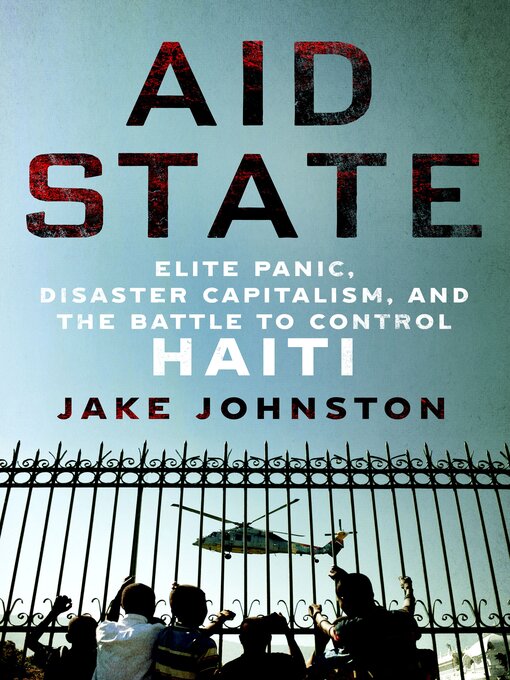Haiti's state is near-collapse: armed groups have overrun the country, many government officials have fled after the 2021 assassination of President Moise and not a single elected leader holds office, refugees desperately set out on boats to reach the US and Latin America, and the economy reels from the after-effects of disasters, both man-made and natural, that destroyed much of Haiti's infrastructure and institutions. How did a nation founded on liberation—a people that successfully revolted against their colonizers and enslavers—come to such a precipice?
In Aid State, Jake Johnston, a researcher and writer at the Center for Economic and Policy Research in Washington, DC, reveals how long-standing US and European capitalist goals ensnared and re-enslaved Haiti under the guise of helping it. To the global West, Haiti has always been a place where labor is cheap, politicians are compliant, and profits are to be made. Over the course of nearly 100 years, the US has sought to control Haiti and its people with occupying police, military, and euphemistically-called peacekeeping forces, as well as hand-picked leaders meant to quell uprisings and protect corporate interests. Earthquakes and hurricanes only further devastated a state already decimated by the aid industrial complex.
Based on years of on-the-ground reporting in Haiti and interviews with politicians in the US and Haiti, independent aid contractors, UN officials, and Haitians who struggle for their lives, homes, and families, Aid State is a conscience-searing book of witness.
- National Poetry Month
- Mine a Good Book
- 250th Anniversary of the American Revolution
- Earth Day Reads
- 2025 Libby Book Award Winners and Runners Up
- How Does Your Garden Grow?
- Always Available Ebooks: Kids Classics
- Always Available Ebooks: Classic Fiction
- Always Available Ebooks: Classic Nonfiction
- Great reads without the wait!
- Adapted for Young Readers
- See all ebooks collections
- National Poetry Month
- Mine a Good Book
- 250th Anniversary of the American Revolution
- Earth Day Reads
- 2025 Libby Book Award Winners and Runners Up
- How Does Your Garden Grow?
- Always Available Audiobooks
- Great reads without the wait!
- Everyone Reads: Spanish Titles for Young Readers
- Adapted for Young Readers
- See all audiobooks collections



